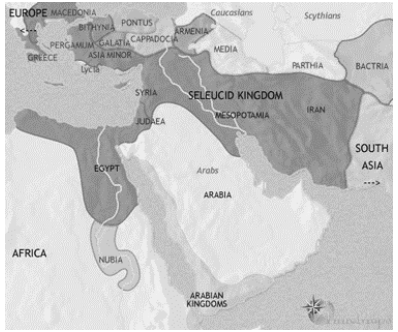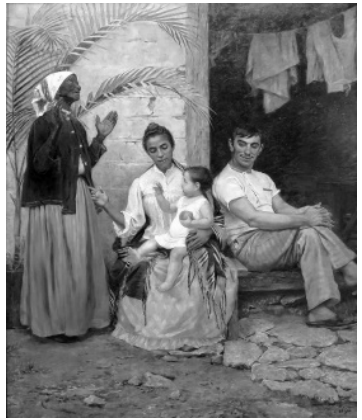Questões de Concurso
Comentadas para prefeitura de passos - mg
Foram encontradas 236 questões
Resolva questões gratuitamente!
Junte-se a mais de 4 milhões de concurseiros!
Eu tenho um sonho que um dia, nas montanhas rubras da Geórgia, os filhos dos descendentes de escravos e os filhos dos descendentes de donos de escravos poderão sentar-se juntos à mesa da fraternidade.
Eu tenho um sonho que um dia mesmo o estado do Mississippi, um estado desértico sufocado pelo calor da injustiça, e sufocado pelo calor da opressão, será transformado num oásis de liberdade e justiça.
Eu tenho um sonho que meus quatro pequenos filhos um dia viverão em uma nação onde não serão julgados pela cor da pele, mas pelo conteúdo do seu caráter.
Eu tenho um sonho hoje. Eu tenho um sonho que um dia o estado do Alabama, com seus racistas cruéis, cujo governador cospe palavras de “interposição” e “anulação”, um dia bem lá no Alabama meninos negros e meninas negras possam dar-se as mãos com meninos brancos e meninas brancas, como irmãs e irmãos. Eu tenho um sonho hoje. (Martin Luther King Jr.)
O trecho destacado do discurso “Eu tenho um sonho” durante a “Marcha para Washington” do pastor batista estadunidense Martin Luther King Jr. deve ser entendido no contexto
“Apesar de todas as mudanças evidentes que os atravessam, estes quatro ou cinco séculos de vida econômica tiveram uma certa coerência, até a reviravolta do século XVIII e da revolução industrial, da qual ainda não saímos.” (BRAUDEL, Fernand)
Nessa passagem, ao analisar o capitalismo mercantil na Europa Ocidental, o historiador francês se refere a um exemplo de
Sobre o sangue ainda quente do meu irmão Sacrificado pela pátria Construo o meu sonho de união Sobre o sangue ainda quente da minha irmã Assassinada pelos carrascos Construo o meu sonho de unidade Unidade cimentada pelo sangue União plantada sobre a terra Germinando no meu gesto Crescendo na minha voz Gritando no teu olhar
Sobre o contexto de pós-2ª Guerra Mundial em Portugal e suas antigas colônias, assinale V para a afirmativa Verdadeira e F para a Falsa.
( ) As ex-colônias portuguesas foram umas das últimas regiões a se tornarem independentes no continente africano, sendo a principal preocupação da política diplomática do regime salazarista
( ) A luta pela manutenção das suas possessões em África chegou a consumir aproximadamente 40% da economia de Portugal, o que ampliava o descontentamento da população com o governo.
( ) O Salazarismo manteve o apoio irrestrito dos militares durante todo o seu período, sendo derrubado pela “Revolução dos Cravos”, em 1969, em um movimento liderado pelos camponeses.
As afirmativas são, respectivamente,
(PERRONE-MOISÉS, Beatriz. Terras indígenas na legislação colonial. Revista da Faculdade de Direito. USP, São Paulo, v. 95, p. 107-120, 2000. p.110)
A questão da escravização dos povos originários causou muitos conflitos no Brasil. Entre eles, é correto assinalar a
(HOBSBAWM, Eric J. A Era da Revoluções: Europa (1789 - 1848). 3ª ed. Rio de Janeiro: Paz e Terra, 1981. p.71-72)
Sobre o período conhecido como Revolução Francesa, é correto afirmar que
“A consciência pesada do colonialismo se uniu assim a consciência pesada da opressão de classe. Dessa maneira foi superada, pelo menos verbalmente, não só a concepção antiquada de folclore como mera coleção de curiosidades, mas também a posição de quem distinguia nas ideias, crenças, visões de mundo das classes subalternas nada mais do que um acúmulo inorgânico de fragmentos de ideias, crenças, visões de mundo elaborados pelas classes dominantes provavelmente vários séculos antes.”
(GINZBURG, Carlo. O queijo e os vermes: o cotidiano e as ideias de um moleiro perseguido pela inquisição. São Paulo: Companhia das Letras, 1987, p.12)
Assim, o autor recorreu a qual conceito para escrever sobre um dos seus mais famosos personagens, o moleiro Menocchio?

(Adaptado de https://timemaps.com/encyclopedia/history-middle-east/)

(Adaptada de https://www.edusp.com.br/wpcontent/uploads/2018/08/%E2%80%98A-Reden%C3%A7%C3%A3o-deCam%E2%80%99.jpg )
I. A miscigenação era um dos temas de preocupação das elites nacionais na busca de uma nova coesão social para a “nação brasileira”, principalmente após a Proclamação da República, pautada na modernidade, no progresso e na trilha da civilização.
II. As teorias raciais, oriundas da Europa, baseadas em um determinismo biológico, encontraram receptividade em boa parte dos intelectuais e cientistas brasileiros desse período, que percebiam a significativa presença de negros e mestiços como obstáculo para o desenvolvimento do país.
III. Com a chegada do liberalismo como paradigma político no Brasil, na virada do século XIX para o século XX, as teorias raciais apresentaram-se como modelo teórico legitimador das hierarquias sociais, antes reguladas pela lógica escravista.
Assinale
In above sentence, the word in bold type cannot be substituted for